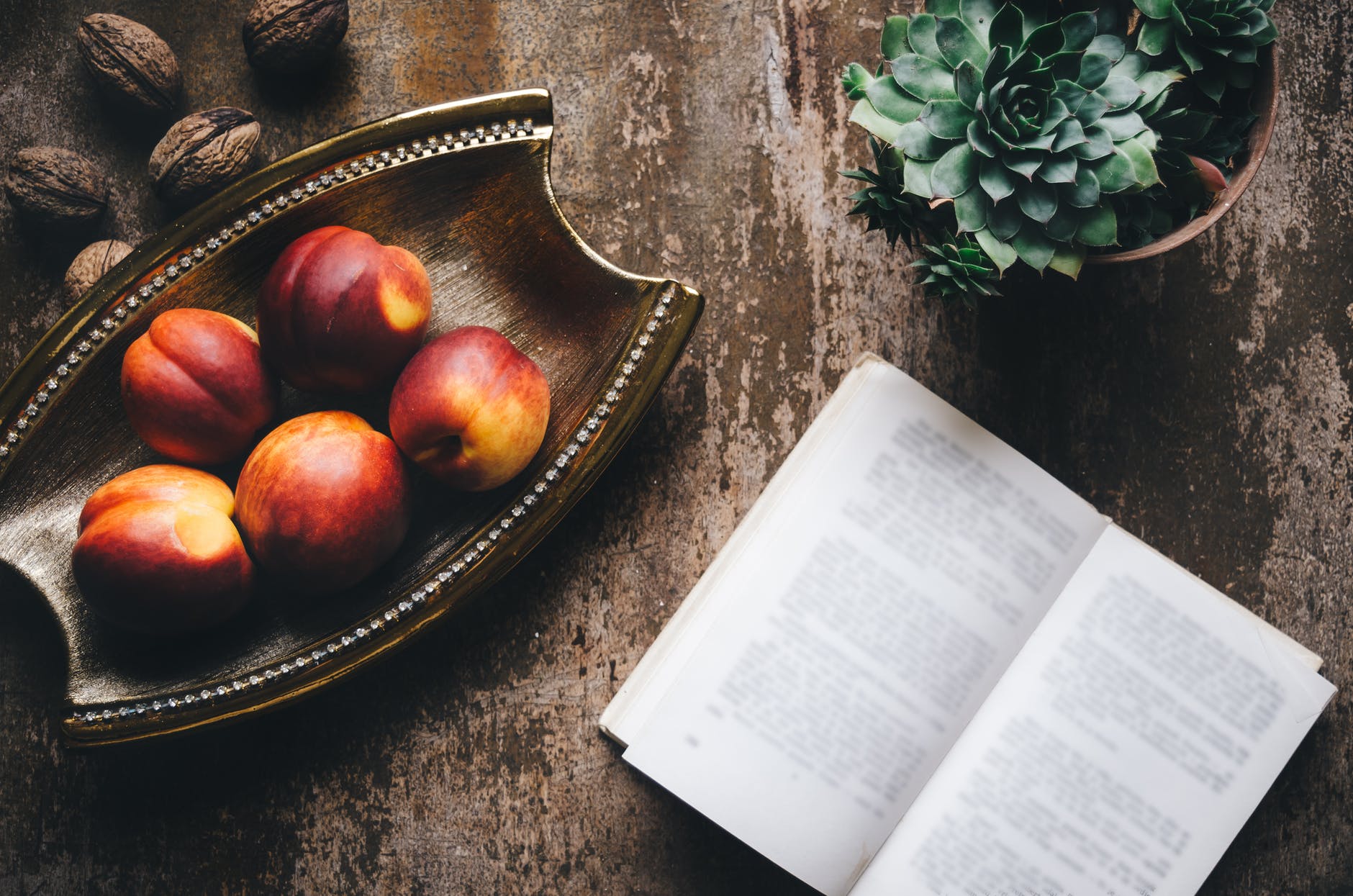Canadian-American poet Molly Peacock stated that poetry was the most provincial form of art. Yet, this insight did not hold her back from making her poetry global through her translator, Anna Yin, who herself was Mississauga’s Inaugural Poet Laureate. At a Zoom event organized by the League of Canadian Poets and cohosted by the East and West Learning Club on August 14, 2020, Molly joined Anna in good spirits to discuss how her three poems written in English were able to reach millions and millions of Mandarin-speaking readers through literary translation.
“Couple Sharing a Peach” captures a moment of love and its music when a couple enjoys eating one peach in a hotel room:
It’s not the first time
we’ve bitten into a peach.
But now at the same time
it splits – half for each.
Our “then” is inside its “now,”
its halved pit unfleshed –
what was refreshed.
Two Happinesses unfold
from one joy, folioed.
In a hotel room
our moment lies
with its ode inside,
a red tinge,
with a hinge.
Anna started with a word-for-word translation to stay faithful to the original. But she was not satisfied. The music and the emotions disappeared in the chain of Mandarin lines. In the revised version, she brought in the Chinese poetic images to convey the feelings, colours, and sounds of the original poem. This is what she shared on her screen:
情侣共享一颗桃
这不是第一次了
我俩共咬一颗桃。
但如今同一时刻
它裂开:均分正好。
果核半开着裸露,
今朝携往事缠绵,
旧情刷新再复燃。
两份幸福自一份喜乐,
扩展再对折。
客栈内,
良宵时分
续情缘——
亦如蜜桃果核,
亦如并蒂情歌。
At the first glance, we see that the translated version remains linguistically loyal only until the fourth line, and only if the change of punctuation marks doesn’t count. Then the translator’s creativity folds in. The imagery of the “halved pit unfleshed” and the coalescence of “then” and “now” are still there, but the Mandarin starts to flare with the poetic expressions such as “今朝”、“往事”、“缠绵”、“良宵”、“情缘”、“并蒂情歌”to convey the feelings of love to the target audience who are familiar with the connotations of these terms. Reading the stanza again, we notice the translator’s loyalty is still there: she made an effort to rhyme as the poet did even though the rhyming scheme appears different. Obviously, the translator prioritizes capturing the soul of the original poem; her compromise with the linguistic form is a thoughtful choice. It is responsible to the English version as it aims to represent its essence. It is also responsible to the Mandarin version because the aesthetic charm speaks to the sensibilities of its readers.
When I asked Molly how she felt when her poems were artistically “distorted” in another language, she responded with good nature. She was delighted that her poetry – the most provincial art form – became global because of the translator. She was happy that her poems were able to travel to another language through translation. Anna’s translation connected her art to the Chinese poetic form, and she – as a result – was connected to her Chinese readers.
“In the attempt is the success.” Molly shared the line she would put on her gravestone to encourage other writers. In the attempt of the poet and her translator to discuss the process of translation to a diverse audience is the success of communicating across linguistic and cultural boundaries. In the attempt to reach a mutual understanding between the cultures from which English and Mandarin are spoken is the success of expanding and enriching the life of both languages.
Leilei Chen is a literary translator, scholar, and writer. She published the Mandarin version of Steven Grosby’s Nationalism: A Very Short Introduction (Oxford University Press) with Nanjing’s Yilin Press in 2017 and Hong Kong’s Oxford University Press in 2020. She is the author of Re-orienting China: Travel Writing and Cross-cultural Understanding (University of Regina Press, 2016). Her poetry and prose translations, and personal essays appear in Home: Stories Connecting Us All (Embracing Multicultural Community Development, 2017), Looking Back, Moving Forward (Mawenzi House, 2019), Beyond the Food Court: An Anthology of Literary Cuisines (Laberinto Press, 2020), The Polyglot, 粤海风(Yue Hai Feng), 中国妇女(Women of China), 光华报(The Chinese Journal. She is a Research Affiliate at the Canadian Literature Centre / Centre de littérature canadienne and teaches at the Department of English and Film Studies at the University of Alberta.

